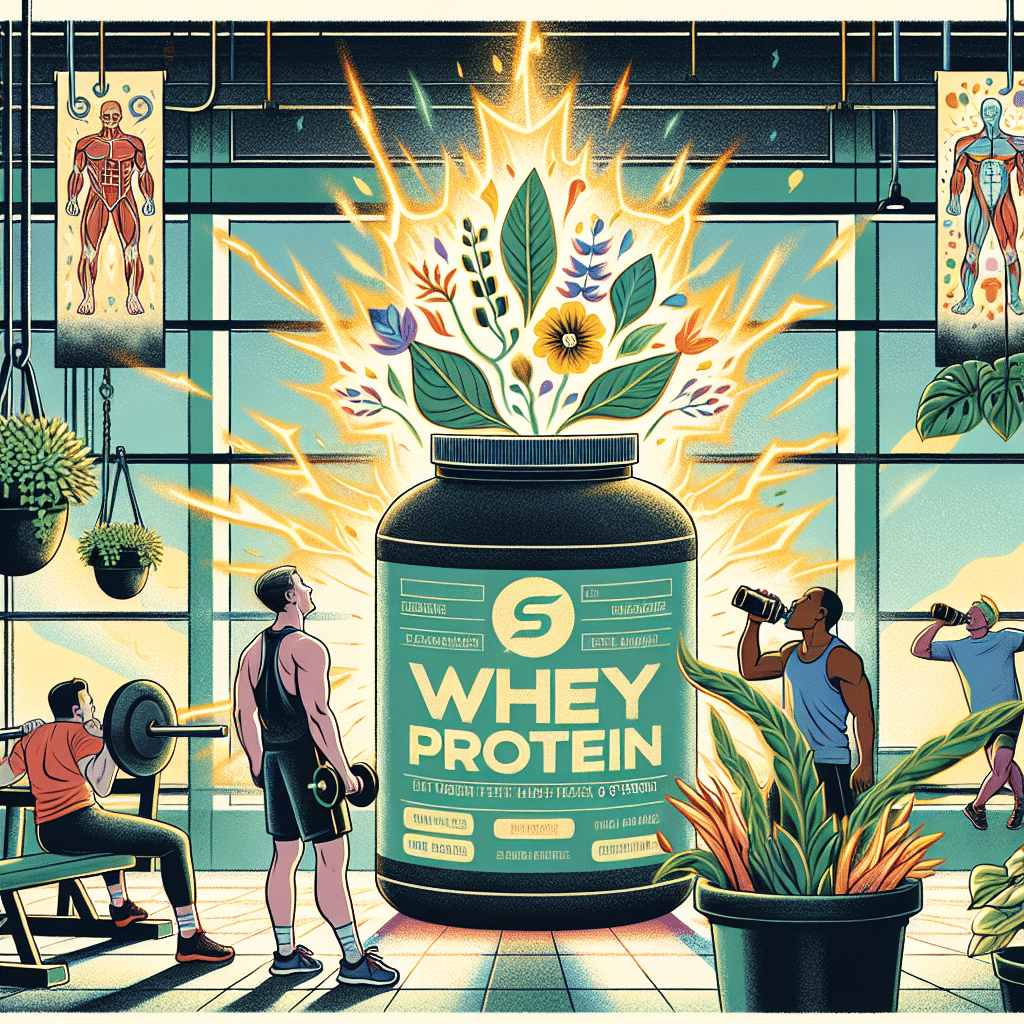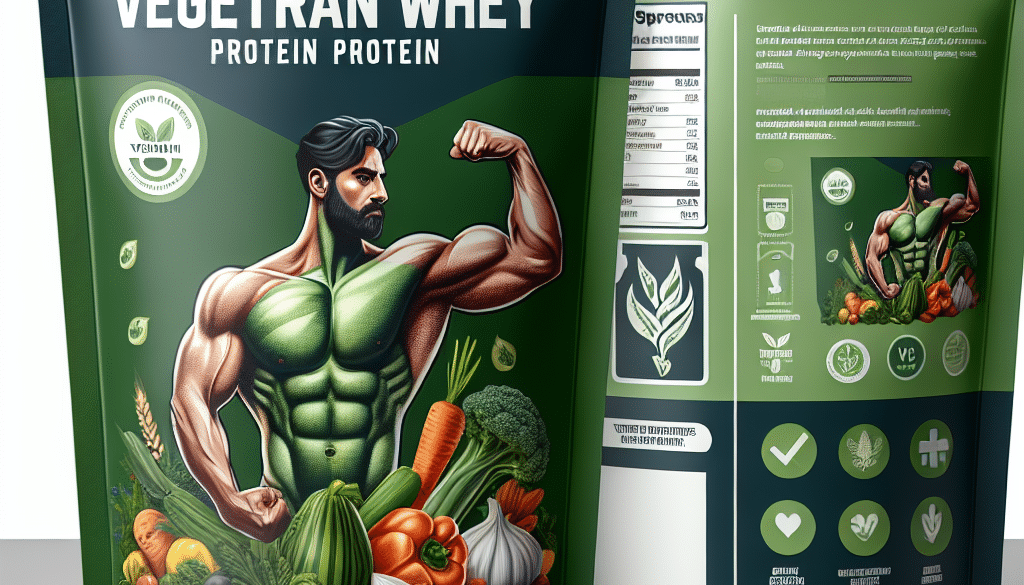Vegetarian Whey Protein: Plant-Based Strength
-
Table of Contents
- Vegetarian Whey Protein: Harnessing Plant-Based Strength
- Understanding Plant-Based Proteins
- The Rise of Vegetarian Whey Protein Alternatives
- Benefits of Plant-Based Protein Powders
- Comparing Plant-Based Protein to Traditional Whey
- Case Studies and Research
- Choosing the Right Plant-Based Protein Powder
- Conclusion: Embracing Plant-Based Strength
- ETprotein: Your Source for Premium Plant-Based Proteins
Vegetarian Whey Protein: Harnessing Plant-Based Strength

As the fitness and health industries continue to evolve, the demand for plant-based supplements has skyrocketed. Among these, vegetarian whey protein has emerged as a paradoxical term that confuses many. Traditionally, whey protein is derived from milk, which is not plant-based. However, the term “vegetarian whey protein” often refers to plant-based protein supplements that serve as an alternative to traditional whey protein, offering similar benefits without the use of animal products. This article delves into the world of plant-based protein powders, their benefits, and how they stand as a formidable option for those seeking to build strength and improve health.
Understanding Plant-Based Proteins
Plant-based proteins are derived from various sources such as peas, rice, hemp, and soy. Unlike traditional whey protein, which comes from cow’s milk, plant-based proteins are suitable for vegetarians, vegans, and those with lactose intolerance or dairy allergies. They provide essential amino acids, vitamins, and minerals necessary for muscle repair, growth, and overall health.
- Pea Protein: Rich in iron and arginine, pea protein is known for its ability to aid muscle growth and heart health.
- Rice Protein: A good source of complex carbohydrates and B-vitamins, rice protein supports energy metabolism and muscle recovery.
- Hemp Protein: Packed with omega-3 and omega-6 fatty acids, hemp protein promotes heart health and reduces inflammation.
- Soy Protein: Containing all nine essential amino acids, soy protein is a complete protein that supports overall health and well-being.
The Rise of Vegetarian Whey Protein Alternatives
The fitness community has traditionally relied on animal-based whey protein to support muscle building and recovery. However, with the rise of vegetarianism and veganism, as well as increased awareness of lactose intolerance and dairy sensitivities, the demand for plant-based protein powders has surged. These alternatives offer a sustainable and ethical option for those looking to maintain a vegetarian or vegan lifestyle while still achieving their fitness goals.
Benefits of Plant-Based Protein Powders
Plant-based protein powders are not only beneficial for those following a vegetarian or vegan diet but also for anyone looking to incorporate more plant-based foods into their diet. Here are some of the key benefits:
- Digestive Health: Plant-based proteins are often easier to digest and can be less inflammatory than dairy-based proteins, making them a good choice for individuals with sensitive stomachs.
- Environmental Impact: Producing plant-based proteins typically requires less water and land and generates fewer greenhouse gases compared to animal-based proteins.
- Allergy-Friendly: Free from common allergens like dairy, soy, and gluten, many plant-based proteins are hypoallergenic and suitable for a wide range of dietary restrictions.
- Nutrient-Dense: Plant-based proteins often come with additional nutrients such as fiber, antioxidants, and phytonutrients that support overall health.
Comparing Plant-Based Protein to Traditional Whey
When it comes to protein quality, animal-based proteins, including whey, have been considered the gold standard due to their complete amino acid profiles and high bioavailability. However, advancements in food technology have allowed for the combination of different plant proteins to create complete amino acid profiles that rival those of whey protein. Additionally, some plant-based proteins are now fortified with enzymes to improve their digestibility and absorption, making them comparable to whey in terms of efficacy.
Case Studies and Research
Several studies have highlighted the effectiveness of plant-based proteins in muscle synthesis and recovery. For instance, a study published in the “Journal of the International Society of Sports Nutrition” found that rice protein isolate consumption post-resistance exercise improved body composition and exercise performance as effectively as whey protein. Another study indicated that pea protein promoted muscle thickness gains just as well as dairy-based protein in athletes undergoing resistance training.
Choosing the Right Plant-Based Protein Powder
With a plethora of options available, selecting the right plant-based protein powder can be overwhelming. Here are some tips to help you make an informed decision:
- Check the protein source to ensure it aligns with your dietary preferences and restrictions.
- Look for a complete amino acid profile, which is crucial for muscle repair and growth.
- Consider the protein content per serving to ensure you’re getting an adequate amount for your needs.
- Opt for powders with minimal additives and artificial ingredients for a cleaner supplement.
Conclusion: Embracing Plant-Based Strength
Vegetarian whey protein alternatives offer a viable and effective option for those seeking to build strength and improve their health while adhering to a plant-based diet. With benefits ranging from improved digestibility to a lower environmental impact, these plant-based proteins are more than just a trend; they represent a shift towards sustainable and inclusive nutrition in the fitness world. By choosing the right plant-based protein powder, vegetarians, vegans, and even omnivores can enjoy the muscle-building benefits traditionally associated with whey protein without compromising their dietary principles.
ETprotein: Your Source for Premium Plant-Based Proteins
If you’re looking for high-quality plant-based protein powders, ETprotein is a company worth considering. Their extensive range of organic and non-GMO protein products includes options like rice protein, pea protein, and various seed-based proteins, catering to a diverse array of dietary needs and preferences. With a commitment to neutrality in taste and allergen-free formulations, ETprotein stands out as a leading supplier for those seeking the best in plant-based nutrition.
About ETprotein:
ETprotein, a reputable plant protein vegan protein Chinese factory manufacturer and supplier, is renowned for producing, stocking, exporting, and delivering the highest quality organic bulk vegan protein and plant proteins. They include Organic rice protein, clear rice protein, pea protein, clear pea protein, watermelon seed protein, pumpkin seed protein, sunflower seed protein, mung bean protein, peanut protein etc. Their offerings, characterized by a neutral taste, non-GMO, allergen-free attributes, cater to a diverse range of industries. They serve nutraceutical, pharmaceutical, cosmeceutical, veterinary, as well as food and beverage finished product distributors, traders, and manufacturers across Europe, USA, Canada, Australia, Thailand, Japan, Korea, Brazil, and Chile, among others.
ETprotein specialization includes exporting and delivering tailor-made protein powder and finished nutritional supplements. Their extensive product range covers sectors like Food and Beverage, Sports Nutrition, Weight Management, Dietary Supplements, Health and Wellness Products, and Infant Formula, ensuring comprehensive solutions to meet all your protein needs.
As a trusted company by leading global food and beverage brands and Fortune 500 companies, ETprotein reinforces China’s reputation in the global arena. For more information or to sample their products, please contact them and email sales(at)ETprotein.com today.












